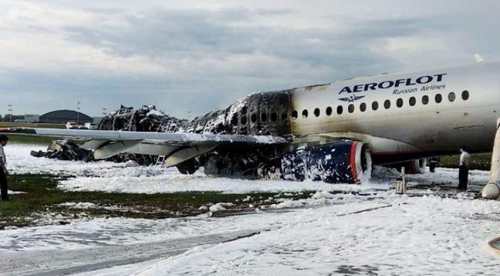Contact has been lost with a passenger plane carrying more than two dozen people in Russia's Far Eastern peninsula of Kamchatka, local officials said on Tuesday.
The An-26 was flying from Kamchatka's main city of Petropavlovsk-Kamchatsky to the town of Palana when it disappeared and failed to land as scheduled, Valentina Glazova, a spokeswoman for the local transport prosecutor's office, told AFP.
She said 29 people were on board, including 23 passengers and six crew.
“Search and rescue efforts are under way,” she said. “All that is known at this time, what has been possible to establish, is that communication with the plane was interrupted and it did not land.”
She said the plane had been operated by a local aviation company in Kamchatka, a vast peninsula in Russia's extreme Far East on the Pacific Ocean.
Russian news agencies quoted local officials as saying there were 28 people on board, including six crew, and that there were one or two children among the passengers.
There were conflicting reports of what may have happened, with one source telling news agency TASS the plane could have crashed into the sea and another telling Interfax it may have gone down near a coal mine close to Palana.
A search had been launched involving at least two helicopters and rescue workers were on standby, the reports said.
Lax safety persists
Russia, once notorious for plane accidents, has improved its air traffic safety record in recent years.
But poor aircraft maintenance and lax safety standards still persist, and the country has seen several deadly air accidents in recent years.
The last major air accident took place in May 2019, when a Sukhoi Superjet belonging to the flag carrier airline Aeroflot crash-landed and caught fire on the runway of a Moscow airport, killing 41 people.
In February 2018, a Saratov Airlines An-148 aircraft crashed near Moscow shortly after take-off, killing all 71 people on board. An investigation later concluded that the accident was caused by human error.
Russia also frequently experiences non-fatal air incidents that result in re-routed flights and emergency landings, usually stemming from technical issues.
In August 2019, a Ural Airlines flight carrying more than 230 people made a miracle landing in a Moscow corn field after a flock of birds were sucked into the engines shortly after take-off.
In February 2020, a Utair Boeing 737 carrying 100 people crash-landed on its belly in northern Russia after its landing system malfunctioned. All of the flight's passengers and its crew survived.
Flying in Russia can also be dangerous in the vast country's isolated regions with difficult weather conditions such as the Arctic and the Far East.














































